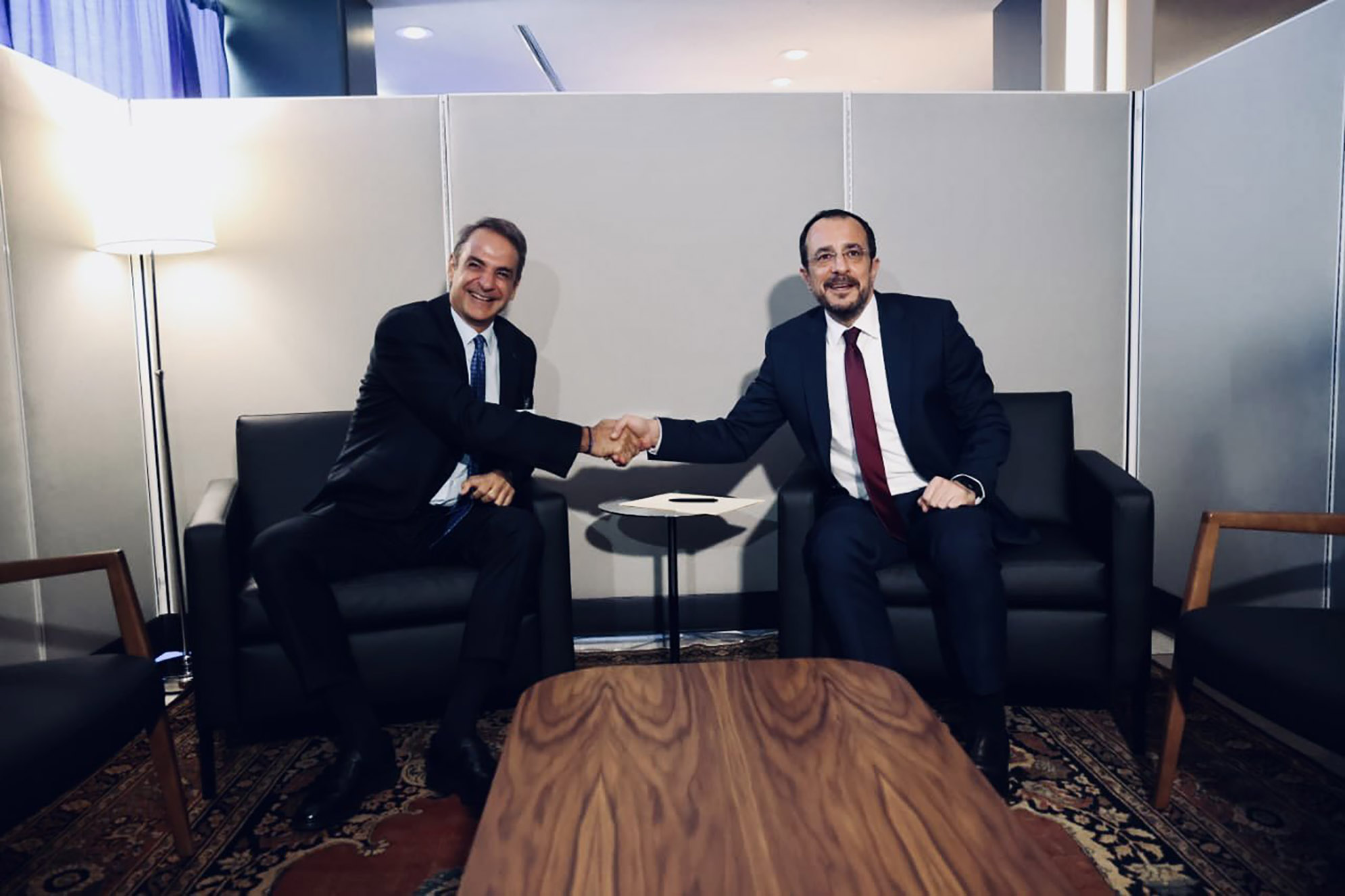Cyprus and Greece are both “fully committed” to the Great Sea Interconnector project, which will link the two countries’ energy grids, as well as that of Israel, according to a joint statement released following a meeting of President Nikos Christodoulides and Greek Prime Minister Kyriakos Mitsotakis on Tuesday.
The pair met on the sidelines of the United Nations general assembly, with the joint statement declaring that the project is “of strategic importance”, and that both European Commission President Ursula von der Leyen and European Council President Antonio Costa “are fully aware of and support” the project.
Away from the matter of the interconnector, Christodoulides and Mitsotakis, according to the joint statement, “reaffirmed … the excellent bilateral relations” between the two countries, while Christodoulides informed Mitsotakis about Cyprus’ priorities for when it undertakes the Council of the European Union’s rotating presidency in the first half of next year.
Additionally, the pair discussed the topics which will be held at the upcoming intergovernmental summit to be held between the two countries in November, while Christodoulides also “informed [Mitsotakis] about the latest developments on the Cyprus problem”.
In particular, the joint statement said, he spoke about the planned tripartite meeting he will hold with UN Secretary-General Antonio Guterres and Turkish Cypriot leader Ersin Tatar on Saturday.
Christodoulides will make his address to the general assembly on Wednesday, while Mitsotakis will make his on Friday.
Both the governments of Cyprus and Greece have been at pains in recent weeks to stress their unity over the matter of the interconnector, with Finance Minister Makis Keravnos having said last week that the Cypriot government has “no intention” to “create a confrontation with the Greek government” over the matter.
Earlier this month, Christodoulides had said for what he described as “the umpteenth time” that Cyprus is “fully committed” to the interconnector project, adding “let them hear it in Cyprus, in Greece, in Brussels, wherever they are interested”.
Prior to that, the two countries had been at odds over the matter of annual €25 million payments which Greece’s independent transmission system operator (Admie) expects Cyprus to make annually, with the Cypriot government withholding the funds.
The annual €25m per year payments are to be made before the interconnector is operational, in effect helping finance the project and ensuring that Admie, the project’s 51 per cent shareholder and implementing body, will have a stable income while investing in the project before it turns a profit.
The Republic of Cyprus has cited a lack of tangible progress on the project and differences in opinion regarding how the money should be sourced in its withholding of the funding, with Keravnos saying last month of the former matter that his stance would change “if the project were being implemented right now and were at a good stage”.
Greek Foreign Minister Giorgos Gerapetritis had disputed this version of events, saying that surveys on the seabed in advance of the laying of electricity cables “did not stop”, but that in fact, “the research was completed according to its planning”.
Over the latter issue, the Republic of Cyprus had initially planned to utilise funds made available to it through the European Union’s emissions trading system (ETS) to make the payments, so as to prevent the burden of the payments from falling on the taxpayer.
Admie had warned that this arrangement may violate the EU’s rules on state aid, and as such asked the Cyprus energy regulatory authority (Cera) to begin charging consumers instead.






Click here to change your cookie preferences